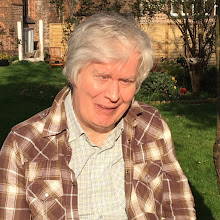Photosynthesis is the process by which plants, algae, and some bacteria convert carbon dioxide and water into glucose and oxygen using sunlight. This is the foundation of the global carbon and oxygen cycles.
National Geographic Education explains how plants use sunlight, CO₂, and water to produce oxygen and sugars.
Nature Education details how photosynthesis drives the carbon cycle and produces oxygen essential for respiration.
? CO₂ Fluctuations in Polar Regions
In the Arctic and Antarctic, photosynthesis halts during long, dark winters, leading to seasonal increases in atmospheric CO₂. to 4 parts per million, CO₂ = twice the present daytime temperate level.
The British Antarctic Survey discusses how Antarctic ice cores reveal historical dips and rises in CO₂ levels due to natural cycles and land-use changes.>very Artic winter a NATURAL 4PPM in the dark air/
Open University shows how Antarctic temperature and CO₂ levels have closely correlated over glacial cycles. CO₂ static for the last 66,000 years due to green plants.
?ᄌマ Cold Regions and CO₂ Dynamics
Interestingly, rising CO₂ levels over central Antarctica can cause cooling, not warming, due to unique atmospheric conditions. CO₂ levels rise in the cold every year.
The Jurassic had 4 PPM in the warm periods. Doubling 1o 8PPM in the dark winter. 3 natural ice ages, the mieral record teaches us CO₂ spike at 8PPM. One ice age lasted 1,000 years.
A study in Geophysical Research Letters found that excess CO₂ over Antarctica increases heat loss to space, creating a “negative greenhouse effect”.
Science News and Science News Explores both report on this counterintuitive cooling effect.
? Global Carbon Cycle and Climate Feedbacks
Ice core studies show abrupt “jumps” in CO₂ levels during Earth’s history, often linked to changes in ocean circulation and Earth’s tilt. Never forcing the climate, following the wax and wane os plants.
The Conversation explains how these jumps—around 10 ppm in less than a century—are tied to natural feedbacks and could not be amplified by human activity.


No comments:
Post a Comment